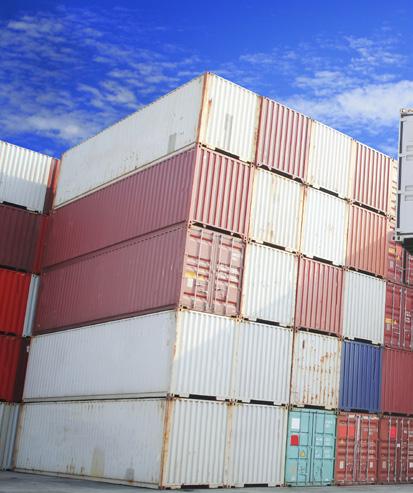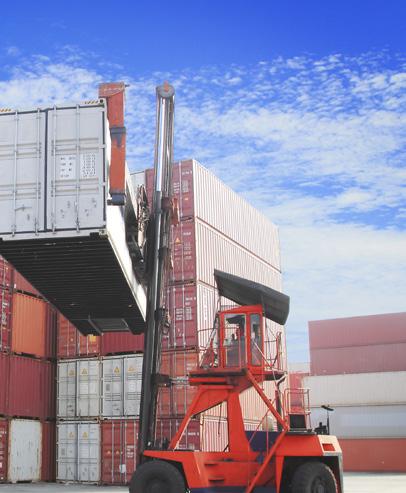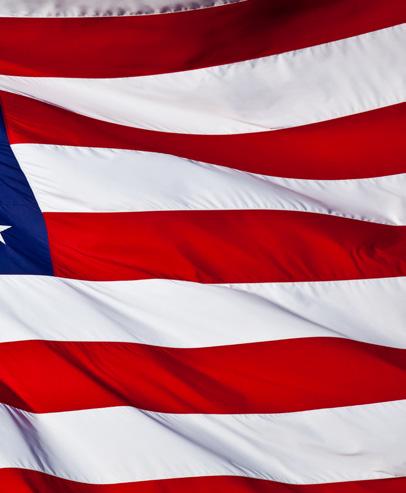
3 minute read
Arias Law Influencia en el nuevo Tratado de Libre Comercio entre USMCA del laudo, emitido por el Panel Arbitral entre Guatemala y Estados Unidos en el marco del DR-CAFTA
Influencia en el nuevo Tratado de Libre Comercio entre USMCA del laudo, emitido por el Panel Arbitral entre Guatemala y Estados Unidos en el marco del DR-CAFTA
Por Florencio Gramajo | Arias Law
A finales del año 2014 EE. UU. presentó una demanda ante un Panel Arbitral, constituido bajo el Tratado de Libre Comercio entre los Estados Unidos de América, Centroamérica y República Dominicana (DR-CAFTA), alegando que Guatemala en violación del artículo 16.2.1(a) del DR-CAFTA, no aplicaba efectivamente su legislación laboral. El artículo 16.2.1(a) del DR-CAFTA establece que: “Una Parte no dejará de aplicar efectivamente su legislación laboral, por medio de un curso de acción o inacción sostenido o recurrente, de una manera que afecte el comercio entre las Partes (…)”. Con base en este artículo, EE. UU. denunció especialmente la ausencia de registros de sindicatos, la inexistencia de tribunales de conciliación, la falta de inspecciones de trabajo y de ejecución de órdenes judiciales. Lo que, a criterio de EE. UU., perjudicaba a los trabajadores estadounidenses, ya que los estándares laborales inferiores reducían costos, afectaban la competencia en el mercado internacional y, por ende, afectaban el comercio entre ambos países.
El 14 de junio de 2017 el Panel Arbitral emitió un laudo favorable a Guatemala, declarando que EE. UU. no había logrado probar que Guatemala había incumplido en la aplicación efectiva de sus leyes laborales y estableció, así un estándar bastante alto para probar cómo las violaciones laborales afectan al comercio entre ambos países.
El resultado del Panel Arbitral trajo consigo la idea que las disposiciones laborales en los acuerdos comerciales de EE. UU. eran básicamente inaplicables y que, por lo tanto, necesitaban disposiciones fuertes y exigibles en futuros acuerdos comerciales. Así, en las disposiciones laborales del Tratado de Libre Comercio entre los Estados Unidos de América, México y Canadá (USMCA), se fijó la presunción que, si alguna de las partes dejara de aplicar efectivamente sus leyes laborales, se presumiría que el comercio entre ambos países se ve afectado negativamente, a menos que el demandado pueda demostrar lo contrario. Teniendo como resultado que la carga de la prueba sea revertida hacia el país demandado.
¿Qué pasaría frente a una eventual renegociación del DR-CAFTA?

Influence on the new USMCA Free Trade Agreement of the arbitral award issued by the Arbitration Panel between Guatemala and the United States within the framework of DR-CAFTA
By Florencio Gramajo | Arias Law
At the end of 2014, the U.S. filed a lawsuit before an Arbitral Panel, established under the Free Trade Agreement between the United States of America, Central America and the Dominican Republic (DR-CAFTA), alleging that Guatemala in violation of Article 16.2.1(a) of DR-CAFTA was not effectively enforcing its labor law. Article 16.2.1(a) of DR-CAFTA states that: "A Party shall not cease to effectively apply its labor law, through a sustained or recurring course of action or inaction, in a way that affects trade between the Parties (...)". Based on this


article, the U.S. particularly denounced the absence of union registrations, the absence of conciliation courts, the lack of job inspections and the execution of court orders. This, in the U.S. view point, harmed American workers, as lower labor standards reduced costs, affected competition in the international market and thus affected the trade between the two countries.
On June 14th 2017, the Arbitration panel issued an arbitral award in Guatemala’s favor stating that the US had not been able to prove that Guatemala had not effectively enforced its labor legislation and thus established quite a high standard to prove how labor violations affect the trade between the two countries.
The outcome of the Arbitral Panel entailed the idea that the labor provisions within the U.S. trade agreements were basically inapplicable and that they therefore needed strong and enforceable provisions in future trade agreements. Thus, in the labor provisions within the Free Trade Agreement between the United States of America, Mexico and Canada (USMCA), the presumption was set that, if either party were to effectively cease to apply its labor laws, it would be assumed that trade between the two countries would be adversely affected, unless the defendant can prove otherwise. As a result, the burden of proof is reversed to the defendant country.
What would happen in the event of a possible DR-CAFTA renegotiation?





